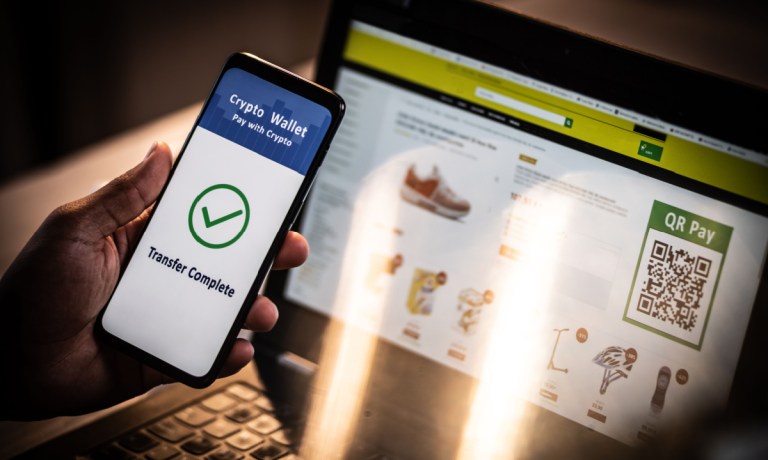PTPShopy Debuts Crypto Payment Platform for Businesses

Business-focused cryptocurrency payment gateway PTPShopy announced it had begun operations Monday (Jan. 15).
“For software or hosting providers, PTPShopy presents a superior SaaS crypto payment solution, enabling easy integration into existing systems,” the company said in a news release.
Offline retailers get a unique point-of-sale and payment link solution, while online retailers “benefit from an accessible API and plugins for e-commerce platforms” to “facilitate payment acceptance and receipt generation.”
The release added that charities and nonprofits can use PTPShopy’s “Donate” feature to set up multiple donation programs, while freelancers can use it to get paid remotely. Merchants, meanwhile, pay just 0.99% of the transaction amount, the release said.
Research by PYMNTS Intelligence and BitPay has found that 46% of merchants accept crypto as a form of payment, with larger retailers more likely than smaller ones to take crypto transactions.
The research found that 85% of businesses with more than $1 billion in annual online sales say they accept some form of crypto-enabled payment method, while just 23% of those with $250 million to $1 billion in annual online sales accept crypto for purchases.
It’s not just retailers accepting crypto. Ferrari’s Chief Marketing and Commercial Officer Enrico Galliera told Reuters last year that the luxury car maker has begun taking crypto payments. The decision was in response to requests from the market and car dealers as many of its customers have invested in cryptocurrency.
“Some are young investors who have built their fortunes around cryptocurrencies,” Galliera said. “Some others are more traditional investors, who want to diversify their portfolios.”
And as noted here in September, many eCommerce players and merchants are adopting crypto as a way to stand out within an increasingly crowded landscape.
“Crypto is a digitally native global asset,” Brad Chase, head of liquidity products at enterprise crypto solutions company Ripple, said in an interview with PYMNTS. “And if you think about this new digitally native, tech-savvy customer segment that is emerging, they hold crypto, and they want to use it for payments.”
“To be a player in this space and to tap into these new markets, you want to be able to accept those assets as part of your merchant or payment flows,” Chase said. “It’s a way that [merchants] can differentiate and show they’re leaning into innovation as a brand by being not just where their customers are right now, but where they will be tomorrow.”